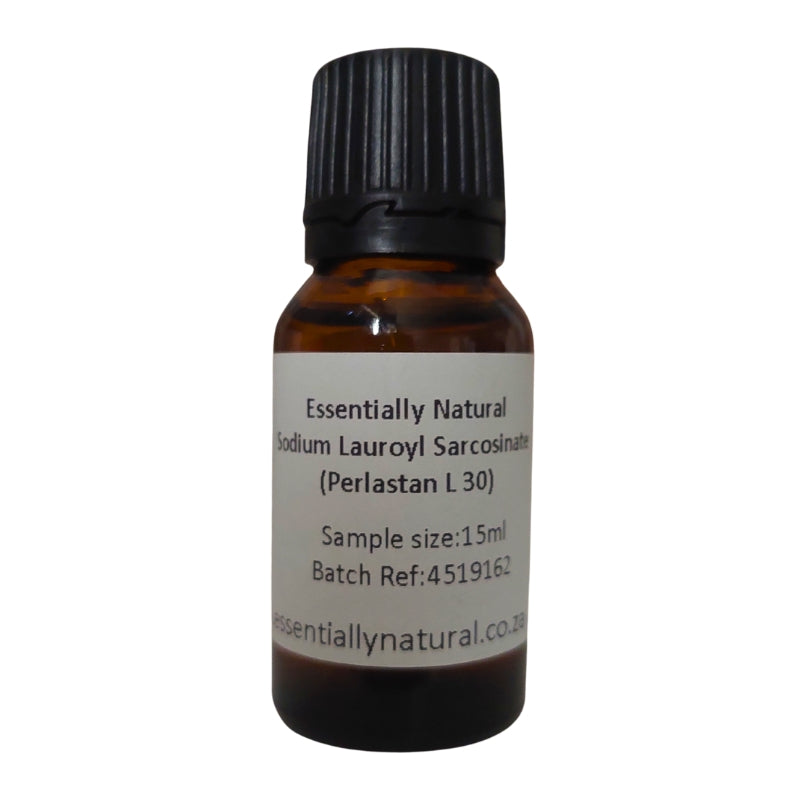Sodium Lauroyl Sarcosinate (Perlastan L 30) - Sample Size (15ml)
Sodium Lauroyl Sarcosinate (Perlastan L 30) - Sample Size (15ml)
Out of stock
Couldn't load pickup availability
Sodium lauroyl sarcosinate may have the same initials (SLS) as sodium lauryl sulphate but it is not the same thing. Sodium lauroyl sarcosinate is a mild anionic surfactant that is derived from sarcosine, an amino acid that occurs naturally in the body and certain plants such as coconuts. Sodium lauroyl sarcosinate is an excellent gentle cleanser that won’t strip skin or hair of their natural oils.
Can be used in shampoos, facial cleansers, shower gels, liquid soap and shaving gels, as well as in DIY household cleaners.
Benefits of sodium lauroyl sarcosinate
- Outstanding lather building, even at higher pH
- High resistance to sebum delathering
- Kind to skin, hair and eyes
- Lowers any irritation of other surfactants
- Skin and hair maintain good feel, softness and lubricity
- Improves moisture retention in skin
- Provides good wetting and detergency
- Blasts through grease and grime
- Environmentally friendly
- Highly biodegradable (aerobic and anaerobic)
How to use sodium lauroyl sarcosinate
Usage rate of 1 - 30%
Normally used as a secondary surfactant at 1 -5% to increase the mildness and boost foam of foaming formulations. To aid stability of the final formulation, the pH should be greater than 6.
Can be thickened with salt. Becomes viscous at pH 5, so you can also thicken by adding citric acid solution and testing to pH 5.
Readily biodegradable.
ASM: 29 - 31%
pH: 8 - 9.3
Anionic
A note on sodium lauroyl sarcosinate and acids:
Sodium lauryl sarcosinate is made from sarcosine, an amino acid (building block of protein). Certain acids such as lactic acid and glycolic acid can denature proteins, and turn this surfactant milky. Therefore we advise against using sodium lauroyl sarcosinate with lactic or glycolic acid.
Other powder acid forms such as citric acid etc seem to be fine.
Sodium lauroyl sarcosinate ingredients
Sodium lauroyl sarcosinate

Essential Reads
-

An Underrated Duo: Zinc and Castor Oil Ointment...
Combining zinc and castor oil might just be the duo your skin’s been waiting for.
1 commentAn Underrated Duo: Zinc and Castor Oil Ointment...
Combining zinc and castor oil might just be the duo your skin’s been waiting for.
1 comment -

-

-






